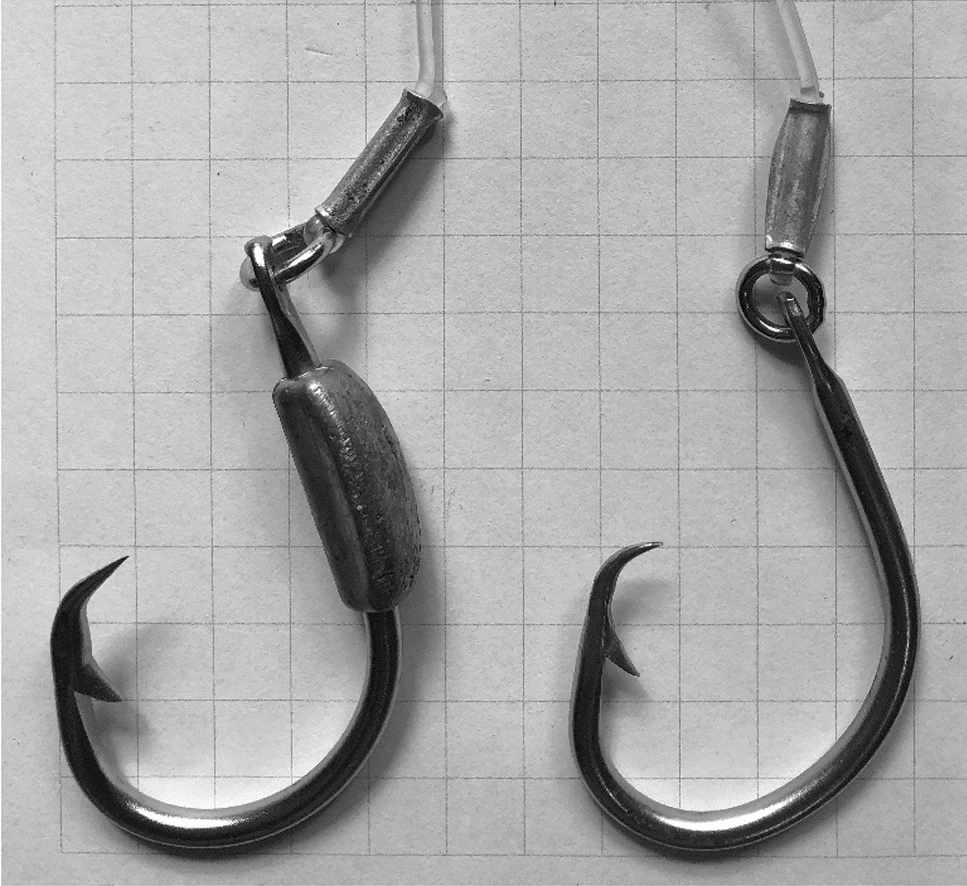
Control and experimental hooks, the weighted hook is on the left; from the publication.
Eric Gilman (The Safina Center, Honolulu, Hawaii, USA) and colleagues have published open access in the journal Scientific Reports on researching weighting longliner hooks tor reduce seabird bycatch.
The paper’s abstract follows:
“Fisheries bycatch threatens the viability of some seabird populations and reduces fishing efficiency. Albatross bycatch in a US North Pacific tuna longline fishery has increased over the past decade and now exceeds 1000 annual captures. Seabirds interacting with this fishery reach hooks at depths up to 1 m. A branchline weight’s mass and distance from the hook affect seabird catch rates. We conducted experimental fishing to compare the commercial viability of a weighted hook relative to conventional gear with weights attached 0.75 m from the hook. We used a Bayesian random effects meta-analytic regression modelling approach to estimate pooled expected species-specific log relative risk of capture on conventional versus experimental gear. There was a significant 53% (95% HDI: − 75 to − 25%) decrease in retained species’ catch rates on experimental hooks, indicating an unacceptable economic cost, and no significant effect for discarded species. Using a Bayesian general linear mixed regression modelling approach, experimental hooks sank to 85 cm ca. 1.4 times (95% HDI: 1.37–1.48) faster than control hooks. Given their potential to reduce seabird catch rates, eliminate safety risks from bite-offs and facilitate robust compliance monitoring, it is a priority to find a weighted hook design with acceptable catch rates.”
Reference:
Gilman, E., Musyl, M., Wild, M., Rong, H. & Chaloupka, M. 2022. Investigating weighted fishing hooks for seabird bycatch mitigation. Scientific Reports doi.org/10.1038/s41598-022-06875-4.
John Cooper, ACAP Information Officer, 27 April 2022

 Español
Español  English
English  Français
Français